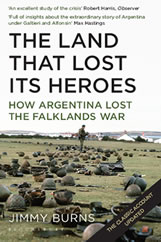For fear or being accused of being a party popper, and in deference to my many Argentine friends who , as I write , are having the most joyous and extended party of their lives, let me first offer my heart-felt ‘felicidades’.
Argentina has not only won two world cups as a democratic country, but each have been achieved thanks by the best player of his time, with a distinct personality and unique set of skills. No need to relegate the memory of the late Maradona to make way for Messi. They stand side by side in the pantheon of Argentina’s football Gods.
So, enjoy the latest deification while it lasts and lets correct Karl Marx- football not religion is the true opium of the masses.
Rarely since Raul Alfonsin won Argentina’s first elections after years of repressive military rule in December 1983 have so many jubilant crowds across the political and social divide taken to the streets of central Buenos Aires. Similar scenes will greet the triumphant Messi and his Argentine squad on their arrival from Qatar as occurred in June 1986 when Argentina last won a last World Cup in Mexico, thanks to Diego Maradona.
Such outpourings of national celebration are to be expected of a football mad nation that for most of its history -but for a brief honeymoon period under Alfonsin- has been a basket case in political and economic terms while still managing to produce the two best players in the history of modern football-with the only glaring similarity, apart from their nationality , that of their relatively small size compared to the scope of their stardom ,both became giants of the most popular sport in the world.
The ‘feel-good’ factor, generated by Messi’s victory this weekend, will provide temporarily a much-needed feeling of shared positivity among his countrymen and women, a shot of happiness and renewed self-belief in the gloom and despair,even if in itself it will not provide the necessary solutions to one country’s endemic ills, let alone bring peace and prosperity to football fans elsewhere in the world.
Football is not rational, let alone moral. Lest we forget, Argentines celebrated in their multitudes their first World Cup victory in 1978, with Kempes, but without Maradona. The final was played in Buenos Aires in the River Plate Stadium,which took place near the notorious naval barracks where political dissidents opposed to the military regime were being tortured and ‘disappeared’.
The repression and corruption in the Argentina that hosted the 1978 World Cup dwarf in scale even the harshest allegations made against Qatar. Not only did over 9,000 people ‘disappear’-tortured and murdered- under the Argentina of the juntas, but football itself was overshadowed by allegation of bribes and drug taking even if in the end it was being football champions of the world that Argentines celebrated whoever who was in power.
By contrast Qatar’s own fledgling national football team in a country of temporary stadiums could manage only a symbolic presence -even if its rulers came out clear winners. For all the efforts of some western media to expose abuse of immigrant labour, and intolerance of LGBT rights- countered by a well-oiled public relations exercise in which some western journalists were complicit and both Messi and Mgappe were among the paid ambassadors – only the England’s squad’s taking the knee before each match during the tournament endured as a visible and necessary reminder that human rights was worth a statement amidst all the football amoral hype of this being the greatest World Cup of all time.
Even journalists who had a conscience were unable to stop themselves from getting caught up in the hyperbole of the game, not least almost willing the tournament to go Argentina’s way, so as to guarantee the best possible outcome for football fans , broadcasters, sponsors, across national boundaries, with Messi , a universal of of the game, finally clinching the crown that glorified football as he played it , as its very best and most compelling at the age of 35, but also deserving of innumerable games in which his unique talent showed.
The final was indeed an emotional roller coaster . I began watching it as a neutral, but halfway into the first half I suspected the worst of conspiracies, so badly was France playing compared to previous matches as if some key players had been drugged or bribed even if we were old it was just a bug.
Argentina was playing well, but France was not playing at all, and I expected more from both teams given their previous performances in the tournament.
Then in the second half, a new generation of players contributed to France’s recovery, with Mbappe waking up, levelling with two goals, then Messi, then Mbappe,followed by the penalties which Argentina felt destined to win, with a help from its president Alberto Fernandez who, advised by his aides, chose not to attend the final in case he brought the team bad luck and risked making an embarrassing show of himself like Macron.
Fernandez may well now be claiming he has brought good fortune, even if Argentine football magic may prove ephemeral. In fairness the Qatar World Cup will be remembered as Messi’s crowning achievement, with Diego looking down from above.

